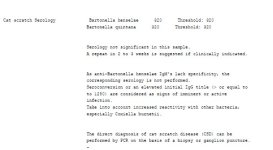Last year an annoying doctor who referred me for this test but he didn't do much about to try to fix things or help me - referred me fot his test that I am attaching here. My main Symptoms are
- GI Issues/Digestion (SIBO)
- POTS
- Very bad exercise intolerance where I feel sick and very dizzy if I try to exercise
- I tend to go easily in alkalosis with reduced Potassium and tachycardia
I think all my issues where beautifully identified and then I lost a year because he said "we cant do much" so am still struggling . It's a bit techy but I highlighted in the doc main things
The key points are:
This is a patchy sympathetic dysautonomia affecting mainly the deep target-organs in the splanchnic vascular bed. The pattern is consistent with immune or systemic inflammatory disorders probably originating from the gut.
These symptoms are in the context of LongCovid/Vax Spike Injury I believe which caused some sort of vascular /endothelial disfunction with resulting microclots and systemic inflammation. I also believe of course there is an element of faulty immune resonse/auto immunity. Most auto autoantibodies for Sjorgen/RA/Lupus are negative. I am pending to check GPCRs/Alfa/Beta/Musk receptors auto antibodies. Negative sofar for Lyme and most coinfection. I have a gut parasite called Blastocystis Hominis and possibly dealing with a degree of candida/fungus in the gut am trying to clear.
I am particualrly warried about the acid/base de arrangement because basically I seem I struggle to exale enough CO2! Also the poo venous return ... is worrying and the funny pressure changes . All it seems apparently to originate from whatever is causing inflammation in my veins aorund my gut which seem are struggling to pump blood back ?
It would be great to know if there anything I could do even as a bandaid to try improve the blood venous return and CO2 washout.
- GI Issues/Digestion (SIBO)
- POTS
- Very bad exercise intolerance where I feel sick and very dizzy if I try to exercise
- I tend to go easily in alkalosis with reduced Potassium and tachycardia
I think all my issues where beautifully identified and then I lost a year because he said "we cant do much" so am still struggling . It's a bit techy but I highlighted in the doc main things
The key points are:
- reduced venous return
- borderline splanchnic sympathetic failure in the deep target organs
- normal resting cardiac vagal tone but it is associated with inappropriate resting bradycardia
- There was lower than normal cardiodepressor but normal vasodepressor effects of the carotid reflex
- state of hypercapnoea in peripheral tissues at rest in supine position
- derangement of the acid/base balance because of poor carbon dioxide washout during deep breathing
This is a patchy sympathetic dysautonomia affecting mainly the deep target-organs in the splanchnic vascular bed. The pattern is consistent with immune or systemic inflammatory disorders probably originating from the gut.
These symptoms are in the context of LongCovid/Vax Spike Injury I believe which caused some sort of vascular /endothelial disfunction with resulting microclots and systemic inflammation. I also believe of course there is an element of faulty immune resonse/auto immunity. Most auto autoantibodies for Sjorgen/RA/Lupus are negative. I am pending to check GPCRs/Alfa/Beta/Musk receptors auto antibodies. Negative sofar for Lyme and most coinfection. I have a gut parasite called Blastocystis Hominis and possibly dealing with a degree of candida/fungus in the gut am trying to clear.
I am particualrly warried about the acid/base de arrangement because basically I seem I struggle to exale enough CO2! Also the poo venous return ... is worrying and the funny pressure changes . All it seems apparently to originate from whatever is causing inflammation in my veins aorund my gut which seem are struggling to pump blood back ?
It would be great to know if there anything I could do even as a bandaid to try improve the blood venous return and CO2 washout.

